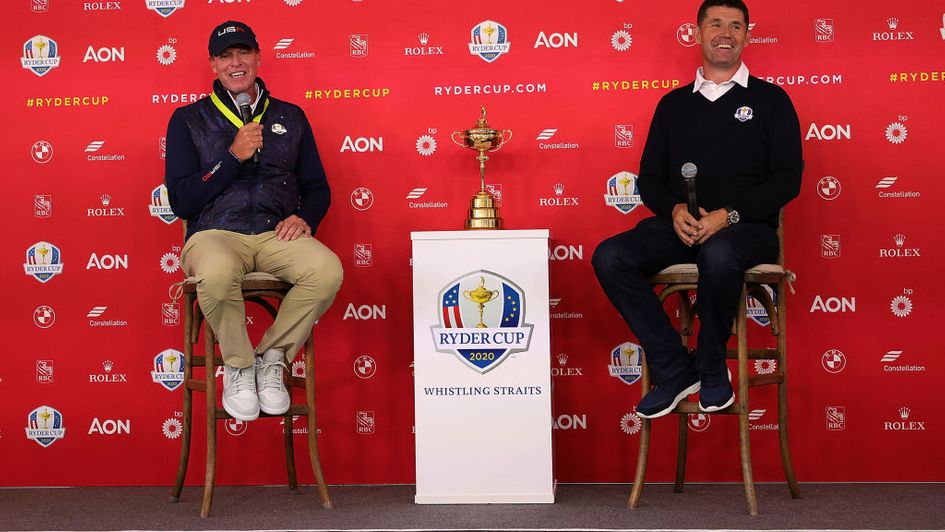
Ryder Cup: Talking points and key questions ahead of 2020 Ryder Cup at Whistling Straits
Ben Coley answers some of the big questions ahead of the 2020 Ryder Cup, which begins on Friday at Whistling Straits.
How do you get the best out of Bryson?
Bryson DeChambeau is many things, several of them rhyming with 'cat'. But there is a risk that his diet, people skills and pseudoscientific claptrap fog our brains no less effectively than a seventh rasher of bacon clogs his bowel. He is not just an extraordinary golfer, but an extraordinarily good one, and such a player ought to be an asset to the United States.
Steve Stricker doesn't appear to be the type to ostracise him, and he may not even be the type to ask Tony Finau to expand his already vast childcare responsibilities. But DeChambeau, who suffered a miserable Ryder Cup experience in Paris, seems unlikely to be asked to play more than three sessions. In fact it appears accepted that to play him at all in foursomes would be an unnecessary risk on the part of the USA captain.
That's probably true, and I suspect this is exactly what we'll see: DeChambeau plays both fourball sessions before the singles, or perhaps just one of them if it doesn't go well. The fact that he has compromised his preparedness to tune up for World Long Drive Championship which follows the Ryder Cup should deny him any sympathy should he spend another team event on the periphery. But it would be a failure of captaincy if the favourites win in spite of their biggest hitter; worse were they to lose having tried to win with 11 men.
Just days after the Ryder Cup, Bryson will compete in the World Long Drive. Here's how he's getting ready for both.https://t.co/QttJQeHPTa
— GOLF.com (@GOLF_com) September 14, 2021
DeChambeau in the right fourball, on a course where long driving can be hugely advantageous, ought to be the most dangerous proposition in the event. When the matches are revealed for Friday afternoon's first fourball session, it could pay to cut through the noise and back the USA pairing with the biggest upside.
From there, it's even possible he might take a hand in those foursomes after all. Stricker will (presumably, by then...) have his Plan A, but he will surely be open to allowing the 2020 US Open champion to play a more important role should his performance on Friday afternoon demand it.
All of this works two ways. To be at his most effective, DeChambeau may have to be a little less selfish, and that won't be easy — even for a man who is still unable to get a Covid jab because he gave his to someone else. But at his core, this is someone who is desperate to be loved. The clearest path to that for an American golfer might be a home Ryder Cup, with few visiting fans, and a cherry-picked partner who does not necessarily hate him. And if Stricker can get three points from DeChambeau, the other 11-point-five shouldn't be a problem.
🎙️ Golf...Only Bettor
— Betfair (@Betfair) September 21, 2021
🏆 Ryder Cup Special
🗣️ Host @SarahSkySports is joined by @BenColeyGolf from @SportingLife and @DaveTindallgolf to look at all the best bets for this year's Ryder Cup including who will lift the trophy.
🔊 Listen Now.
https://t.co/lnwHqrG9pJ pic.twitter.com/b3MYzHoOTa
Is Poulter’s star on the wane?
Ian Poulter has long been a divisive character, a golfing Jamiroquai for whom heart on sleeve and foot in mouth can be one and the same. I mean, who among us hasn't suffered the indignity and inconvenience of being separated from the au pair while flying? Still, it's probably best when such misfortune befalls you to, well, just get on with it.
When it comes to the Ryder Cup, however, there has been unanimity. The United States players want to beat him, their crowd wants to boo him, and every European from captain to supporter wants to pick him. That is, until now.
Poulter's missed cut in the BMW PGA Championship left him vulnerable in the eyes of some, if not those of Padraig Harrington. That one misstep in a generally solid season was deemed enough to pivot to Justin Rose, who sort of had a chance to win it for a bit. Given that this collective might not necessarily engage with the sport on a week-to-week basis, the fact that Rose had a couple of major top-10s to his name also helped.
Churlishness aside, Rose is clearly a decorated golfer who, at is best, is better than Poulter. And in any form of golf, from the most volatile to the most predictable, quality of golfer is the best determinant of performance. Poulter the Ryder Cup player deserves to be judged separately from week-to-week version. Nevertheless it's fair and reasonable to argue that Rose would've been a more worthwhile addition to the team.
That said, it's unfair to overlook the fact that Poulter has been one of the top 10 European performers this year. Sport obsesses over wins, and golf obsesses over majors, but the veteran Englishman has played to a consistently high standard besides those two relative failures, churning out cuts, cruising through to the penultimate FedEx Cup Playoff event, and producing a body of work broadly in line with the run-up to previous wildcard selections.
When you remember it’s Ryder Cup week😏@RyderCupEurope pic.twitter.com/vIGNaiKE0T
— Ian Poulter (@IanJamesPoulter) September 20, 2021
None of this means he was the better option, but he was the medium- and short-term form option. Form isn't four rounds, at least not the relevant kind. Just last week, Kristoffer Broberg won on the European Tour, but if you were asked to predict where he'd finish next time, I doubt you'd be wise to go high. Anything can happen in one tournament. Widening the lens is vital.
Poulter, I believe, was as deserving of selection as anyone who failed to qualify can ever be. However do not mistake that for a belief that he'll play a key role. The truth is he was poor at Gleneagles, didn't get close to making the side at Hazeltine, and returned a level 2-2-0 record in Paris. That he added Dustin Johnson to his list of singles scalps was of course impressive, but there is surely no longer any need for the USA to fear him. In fact I suspect they'd line up to take a shot.
In 2006, Colin Montgomerie bowed out with two points from four, 11 years after Seve Ballesteros had ended with one point from three. Lengthy Ryder Cup careers do not generally end on individual highs. Nothing he can do here will undo what happened there, at Medinah, but Poulter will have outperformed expectations — and justified inclusion — if he can find at least two more points from somewhere.
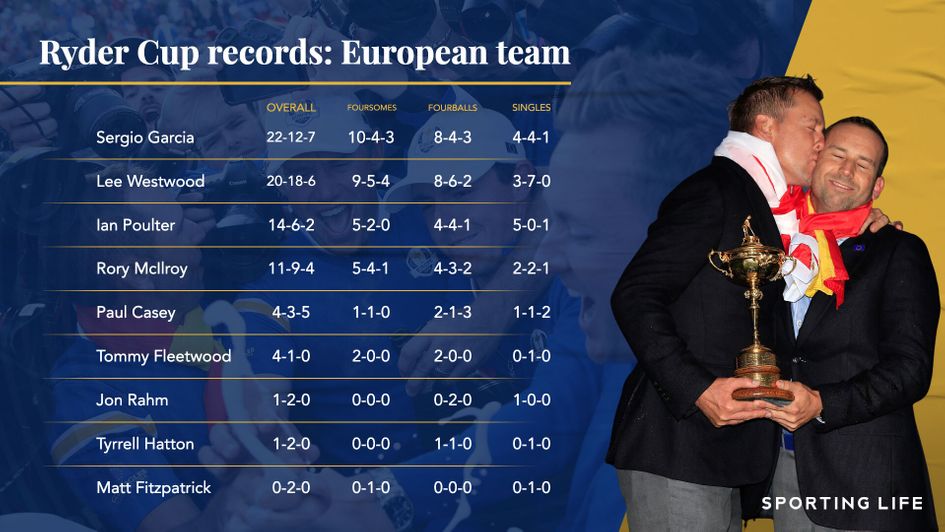
Who will play all five sessions?
In some respects this is a bit of a silly one to try to answer now, because circumstances will dictate. Three years ago, you'd have been in the minority to predict five matches from Francesco Molinari and Tommy Fleetwood, the former having built a ho-hum record in two previous appearances, the latter a rookie, but they kept winning, so they kept playing.
On the USA side, note that it took until that Paris renewal for Dustin Johnson to play all five matches in a Ryder Cup, though he did play four from four at Celtic Manor. It speaks to the strength of American options that he didn't even get to go out in every session in 2016, when he'd won three times in a golden summer which saw him become a major champion at last.
Having been slightly below his best in the months leading up to this, Johnson might be restricted to four or even three appearances once more, but five is possible if he wins on Friday morning. Whistling Straits is so clearly a good course for him and if Steve Stricker can find the right partner (perhaps Collin Morikawa?) he may yet be the dominant force despite a quiet preparation.
The other obvious candidates for Team USA are Justin Thomas and Jordan Spieth, more so the former having gone 4-1-0 in Paris. They were the away equivalent of Molinari and Fleetwood and almost as effective, the one caveat here being that the US side is stronger this time. Surely, all 12 members will feature on day one and they might have to win impressively to remain an item.
That brings Patrick Cantlay and Xander Schauffele into the equation. If Thomas and Spieth do stumble, but these two Californian friends get off to a winning start, there's scope for them to play the equivalent role to Moliwood. It's not all that difficult to envisage them quietly accruing three or four points while Stricker is forced to be a little more experimental elsewhere.
As for Europe, things seem a little clearer. Rory McIlroy hasn't yet missed a session and it's clear he has the faith of his captain. Jon Rahm surely won't be expecting to, unless last week's stomach bug really has had an impact and his energy needs to be conserved. Viktor Hovland already looks like he'll need to play at least four matches as a rookie, and Shane Lowry could do something similar, particularly if he and McIlroy combine effectively.
The two I find hardest to assess are Sergio Garcia and Paul Casey. For a player of his talents, and one with a fine match play record, Casey hasn't been as involved as you might think for Team Europe — that may now change if the 44-year-old feels he can keep going to the well. As for Garcia, aged 41, he has played 41 of 45 sessions in a quite magnificent Ryder Cup career, and he too arrives as one of the form picks for Padraig Harrington.
Double-figure prices about Garcia top-scoring for Europe could look generous if day one goes to plan. That plan, I believe, will see him play in the morning foursomes perhaps even with McIlroy, and then partner his friend and ally Bernd Wiesberger in the afternoon fourballs. If the expectation that he will have maximum opportunity on Friday is enough for you, he's a very fair price.
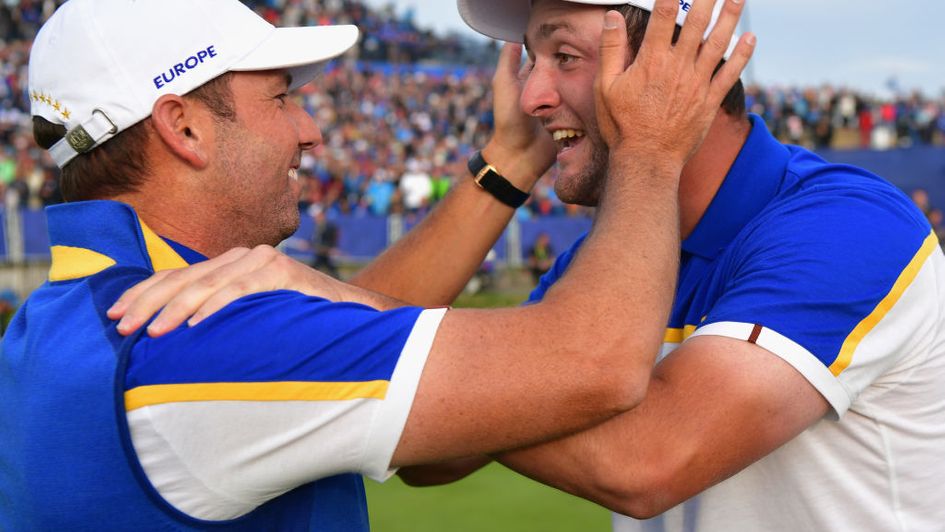
How important is an early lead?
Momentum. We all know this a word which will be used whenever something good follows something good, but forgotten about or else repurposed when something good follows something bad. When a player holes a clutch putt for a half, then wins the next hole, it's because of momentum. When in similar circumstances they in fact lose that second hole it's an example of a change in momentum, often referred to as a 'momentum swing'. What is momentum, really?
Joking aside (that's how I do jokes), the truth is a very early lead hasn't been much of a guide in the Ryder Cup. The last time Europe won the first session was 2006 at the K Club. Since then, the USA have won five of the six, failing only at Medinah, where it ended 2-2, but where they'd moved into a 5-3 lead by the end of the day. At Gleneagles and in Paris subsequently, they've made brilliant starts — and been beaten by five o'clock on Sunday.
If Europe again lose the first session, who knows what price they might be as they welcome in their other four players for the afternoon fourballs. I happen to believe that this crop of US superstars will this time capitalise on a strong start, but if your inclination right now is to back the underdogs at 5/2, you might be able to top up at 5/1 a few hours after those first tee-shots are struck. So much may depend on those day one foursomes.
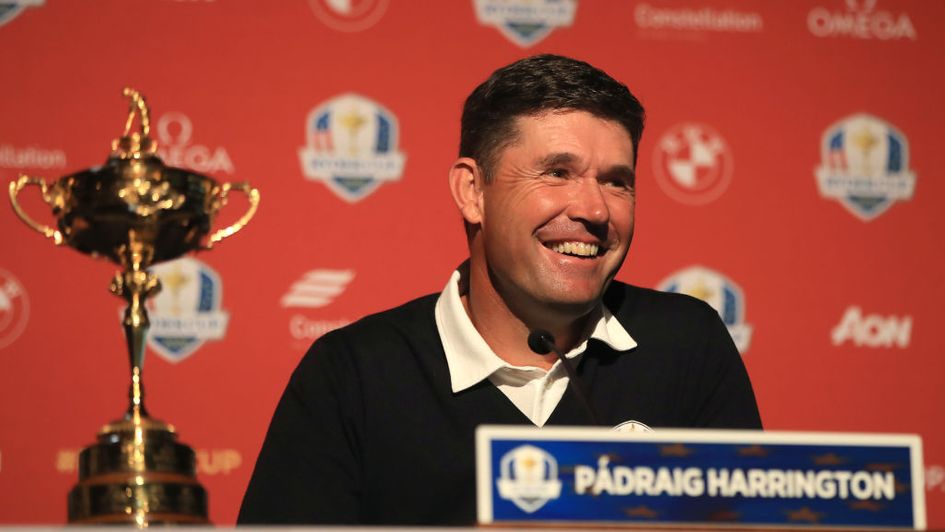
Are the USA better at singles?
Yes, a little bit, and if you find the right person, they can probably explain the sociocultural underpinning of this fact, and how it speaks to their performances in the Ryder Cup as a whole. Ask me and I would say maybe American sportspeople are a bit more selfish and a bit less balanced than European sportspeople, but these broad brushstrokes are risky if you don't have a PhD or some kind of field experience. I have twitter.
The fact of the matter is that Europe have been able to lose the singles and win the Ryder Cup, such has been their effectiveness over the first two days. The last time the United States did this was in 1953, when just a dozen points were on offer. Since the competition expanded, the US have won the singles in defeat three times (1987, 1997 and 2010) and to salvage a draw once, in 1989. In that respect there is a more simple question with a straightforward answer: are Europe better at pairs?
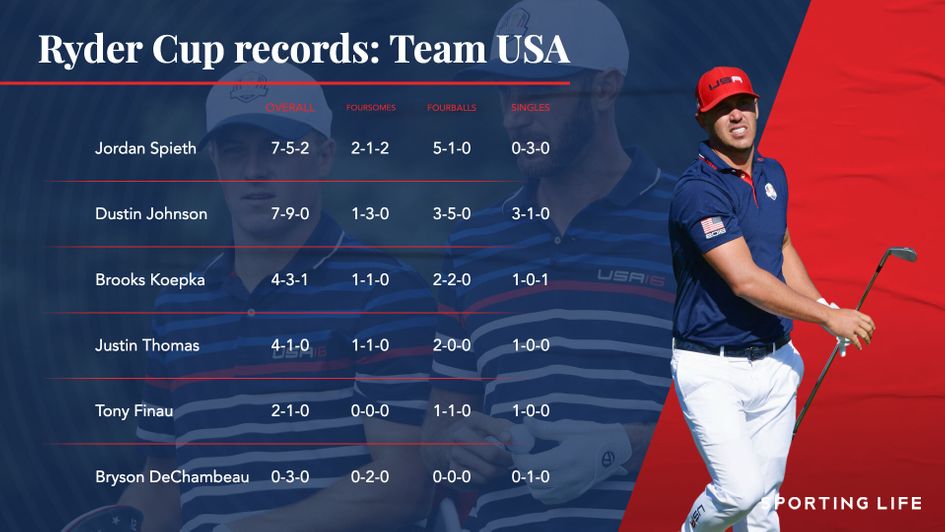
Perhaps this all tells us that to win, Europe must lead into the singles. Perhaps it tells us that if the USA are leading, chances are they increase that lead, rather than suffer a repeat of Medinah. Perhaps though the best option is to remove the doubt which can spread as the competition evolves, and back the home side to win the singles at a bigger price than they are to win the Ryder Cup.
Underestimating Europe has been costly in the past, but man for man they are the weaker team. Not only that, they are the team whose recent form appears flimsier, and it would be hard to paper over the cracks once we get to head-to-head singles in ordinary circumstances.
This Sunday, those 12 will head out onto the course not only without a partner, but without meaningful support. The Ryder Cup can get hostile in a way the Solheim Cup is yet to, and if red starts to appear on that board, it will take something extraordinary for Europe to turn the tide with so much against them.
Click the image for our free Ryder Cup guide
MOST READ
Next Off
Fixtures & Results




















